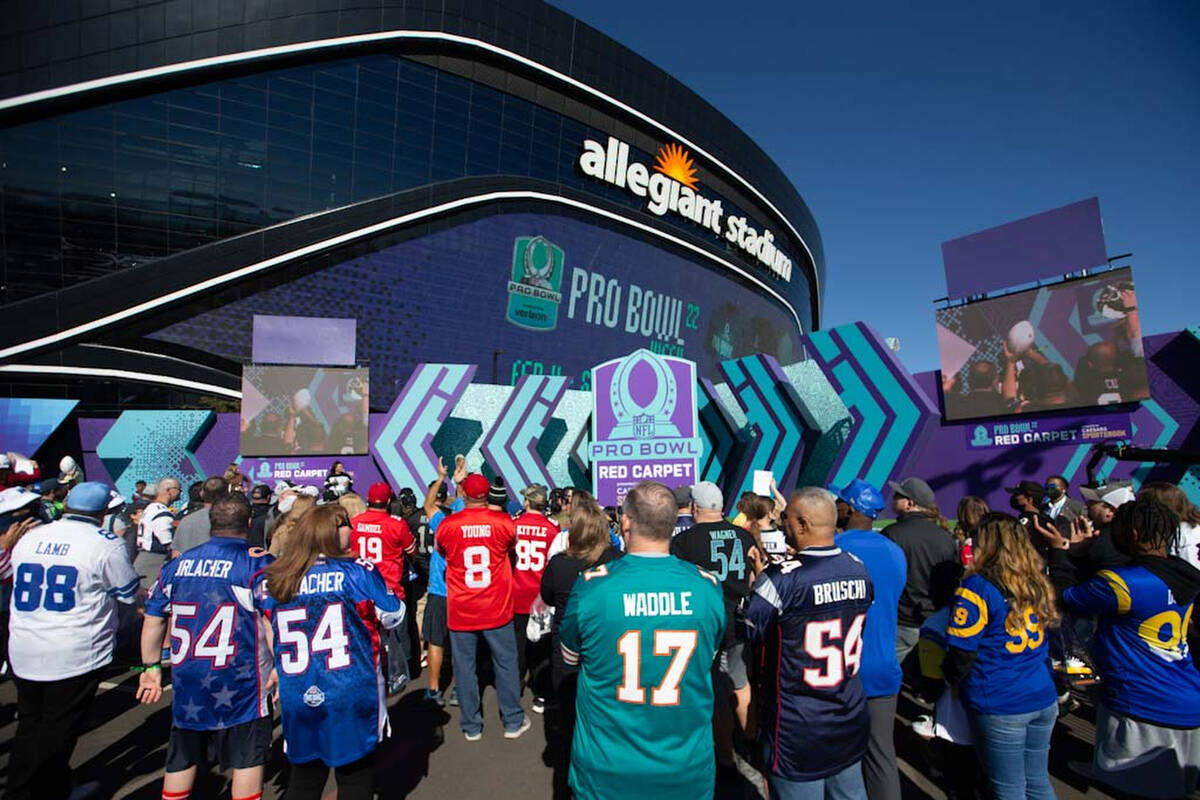STEVE SEBELIUS: Stadium subsidy criticism lives, despite successes

Things are going well at Allegiant Stadium: The Review-Journal reported this week that special events at the stadium are outperforming predictions.
So that should end criticism from those who opposed an additional room tax to provide a $750 million stadium subsidy, right?
Actually, no.
The success of the stadium is irrelevant to the question of whether it was a good idea to spend tourist taxpayer money on it. In fact, one could argue its success proves one of the critics’ central points, that no public wealth was necessary to build the venue.
I never worried the stadium would sit idle. I simply thought plighting the taxpayer trough for a multimillion-dollar team in a multibillion-dollar league was unnecessary. And I wasn’t the only person who thought so: Eighteen state lawmakers — from both parties — cast votes against the stadium subsidy in 2016.
Sports teams are among the biggest extortionists when it comes to peeling public dollars from public hands. They do it in order to come to a town, they do it when they’re thinking of leaving a town, and they often play towns off one another to get the best deal — for them.
Meanwhile, critical needs in Las Vegas — in education, housing, police services and foster care, just to name a few — go wanting.
I’m not saying the stadium subsidy is taking away from those needs; it’s not. This was a brand-new tax created exclusively for the stadium. And I’ve lived in Las Vegas long enough to know there’s no way the casino industry would have approved a special room tax for schools, low-income housing or health care clinics. While those things help community life, they don’t bring tourists to tables.
Southern Nevada has a long history of giving away the store to lure teams to town. The city of Henderson sold 55.6 acres of prime real estate worth $12.1 million to the Raiders for $6.05 million in 2018, a nice discount. Two years later, the Raiders quickly sold its headquarters building for $191 million and leased it back.
But wait, there’s more: Henderson also contributed $15.15 million toward the cost of the $26 million Lifeguard Arena, a practice facility for the Henderson Silver Knights.
But wait, there’s even more: The city sank $42 million into the Dollar Loan Center arena at Green Valley and Paseo Verde parkways, roughly half the cost of the facility.
Today, the Dollar Loan Center’s lights shine in the night like the noonday sun, piercing surrounding residential neighborhoods and serving as a beacon for Southern Nevada’s credulity when it comes to giving away tax money.
Honestly, does anyone doubt if the American Badminton Consortium asked Henderson officials for a subsidy to build its International Tournament Aerodrome, they’d be writing checks before the pitch was over? It wouldn’t even matter that I just made up that organization.
And let’s not forget the $80 million, 20-year deal signed by the Las Vegas Convention and Visitors Authority for the naming rights to the minor-league baseball stadium in Summerlin, owned by the Howard Hughes Corp. What brilliant moniker did the LVCVA come up with for that money? “Las Vegas Ballpark.” Stunning, but not in a good way.
Las Vegas isn’t exempt, either. Mayor Carolyn Goodman pushed hard for a soccer stadium in Symphony Park. The project ultimately fizzled, but not before the city spent $3.1 million trying to get it done.
What do all of these things have in common? The fact that the teams and organizations who “partnered” with local governments could have borne the expenses without taxpayer help.
The classic justification is that stadiums and arenas and that Badminton Aerodrome will bring tourists and new tax revenue to town. Forget the fact that, many times, those projections don’t pan out. The real question: Should government money be going to those projects? Or should it be going to things for which government is exclusively responsible, including schools, police and fire services, and social welfare including affordable housing?
And it’s not like we don’t know better! The Vegas Golden Knights play in an arena that was built entirely by private funds without government help. So it can be done.
That’s something to keep in mind the next time a team (hello, Oakland A’s!) comes to town, saying they’d just love to move here, if only they could get a little help on the land, or the construction, or the naming rights. Nevada’s taxpayers and tourists have given enough to wealthy sports teams.
Contact Steve Sebelius at SSebelius@reviewjournal.com. Follow @SteveSebelius.